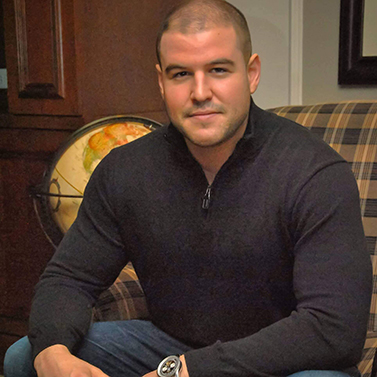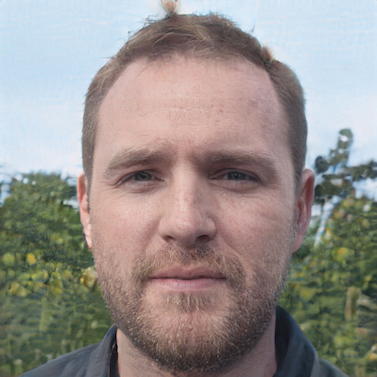
Chris Scott
Table of Contents
Proactively correct nutritional deficiencies
One of the most effective ways to prevent relapse is to proactively correct nutritional deficiencies through diet and supplementation. This approach is called nutritional therapy or biochemical repair, and a growing number of addiction experts have come to realize that it’s an important “missing link” in the addiction recovery puzzle. Most recovered substance abusers are familiar with the need for social support and psycho-spiritual guidance, but very few are aware of nutrient deficiencies and neurotransmitter imbalances that can linger for months or even years after quitting alcohol or drugs.
Biochemical repair regimens usually involve amino acids, which are the natural precursors for neurotransmitters in the brain, along with specific vitamins, minerals, fatty acids, probiotics, and herbs that can help to stabilize the brain-body system. Supplementation and a healthy diet can help to reduce systemic inflammation, which itself contributes to risk factors for relapse: anxiety, depression, and insomnia. It’s easy to understand why someone who is feeling anxious or depressed, or struggling to get enough sleep, would turn back to a substance that has worked in the past to temporarily ameliorate these intolerable symptoms.
The pandemic itself has confined many people to their homes, resulting in reduced vitamin D3 levels, along with weight gain and a corresponding spike in systemic inflammation. Research has shown that vitamin D3 plays an important role in immunity, but the connection between vitamin D3 and serotonin production is less well-known. As it turns out, the “sun vitamin” is crucial for a stable mood, and it’s highly likely that lack of sun is compounding the misery caused most obviously by reduced opportunities for social gatherings. Relapse is an extremely difficult issue to address with tools from traditional models of addiction treatment, and the easiest solution to the surge in pandemic-related relapses into addiction can be found in biochemical repair.
Discover a new hobby
Since all of us have a lot of free time to spend during this pandemic, it is a great opportunity for someone who’s recovering to develop new skills and discover new hobbies. It would be very helpful to prevent relapse since being busy with something more productive eliminates a person’s thoughts about substance use. However, in order to achieve this, developing new hobbies with someone’s support, like from a family member, would be much better and will make everything easier since it will motivate and encourage someone to push through in recovering.

Robert Johnson

Joanne Ketch
Build new and powerful neural pathways
A relapse occurs when previously healed neural pathways become catalyzed, or new pathways that were created in recovery have been atrophied. Think of it this way; patterns of behavior are created as pathways in the brain. Frequently used pathways become the “default mode.” This is true in the behavior of alcohol or other drugs. The person with a substance use disorder begins to use reflexively.
In recovery, those pathways need to be extinguished or atrophied. The easiest and best way to do that is to build new and powerful neural pathways. These are done most powerfully when lots of input is created through the intensity of emotion such as excitement. Powerful brain-changing activities are exercise, regular practice of meditation, celebrations such as worship, creativity such as music or hobbies, personal transformation such as religious experience, 12 Step, therapy, [and] contemplative movement such as yoga or Tai Chi. Volunteering is powerful as well. When these new habits are reduced, the person becomes more vulnerable to relapse due to the reasons that the brain was predisposed toward: [The] misuse of substances (often a mix of heritable factors, trauma, or created by an issue such as interaction with a necessary medical intervention.)
Another helpful approach includes reviewing triggers in an in-depth manner. If the person in recovery can become aware of their internal triggers, such as mood states [like] anger, boredom; bio states such as hunger, tiredness, or in pain; and external triggers such as certain people, places, and things. Triggers are individual and each person should take a thorough look at what their particular triggers are so they can structure their routine and life to manage things in a way to not avoid real life, but to be wise and proactive.
Get Curious, not Furious
Answering “How?” when it comes to addiction and recovery is difficult. Of course, there can be a list of 10 things we can do to avoid picking up our DoC but those will so often just be filled with pacifiers we can turn to, replacing one escape with another.
The work I do helps people focus on being curious. I talk about “Recovering To.” When our lives are wrapped up in “Recovering From” we can get confused about what living life, and getting clean, are all about. We are not in it to look back for the rest of our lives, we need to start looking forward as well.
When we can change the framework around our thinking we can obtain long-term recovery. There are many avenues to get and stay sober out there, and none of them work for everyone, which is why each individual has to do it in their own way. Some people will get “California Sober,” others will use AA or some other fellowship, and still other something else, but staying clean and/or sober anytime is difficult, and more so during the pandemic. But if you can get curious about your cravings, what is causing them, what you want to do about it, and don’t get scared looking over your shoulder at the horrors you are running from, it gets that much easier.
If there is one bit of advice I can give it would be “Get Curious, not Furious” because once we get upset, or off-kilter in any way, we can’t think clearly.
Simple curiosity tends to keep us thinking clearly.

Martin Jon

Jeff Chervenak
Do not include wanting or thinking about using
A less obvious way to help prevent relapse is not to fall for the “I got this.” During this pandemic, every aspect of almost everyone’s support system and the network has come under strain, including internal resources. The red flags to look out for generally do not include wanting or thinking about using; if that’s true, get professional help immediately. No, an example would be isolating or noticing changes in appetite and mood. I understand many non-addictive people will experience these things, but they don’t have the same vulnerabilities. The recovered substance abuser needs to be more aware than non-addicted people and not be afraid or too prideful to ask themselves, “how can [the way] I’m feeling affect my sobriety” and then tell someone else about it.
One way to be successful is to remember you are vulnerable, no matter how much time you have, to the monster that is addiction.
This is a crowdsourced article. Contributors' statements do not necessarily reflect the opinion of this website, other people, businesses, or other contributor
